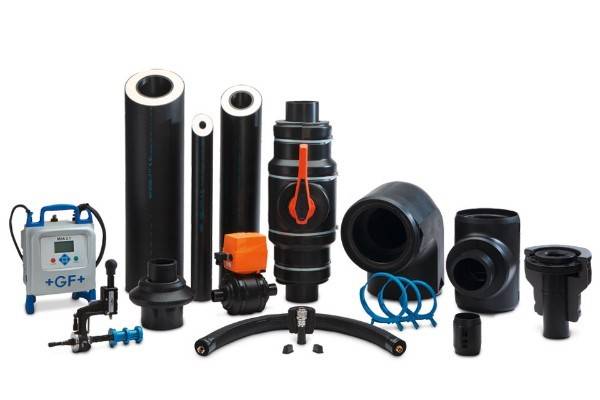Tech File: Study Suggests Pre-insulated Plastic Piping Aids Passenger Ships Efficiency
A new study by GF Piping Systems and Foreship shows HVAC applications on passenger ships offer significant potential for improvement. The study, comparing a baseline steel piping system with pre-insulated polyethylene pipes in an air conditioning chilled water system revealed that plastic is more efficient in four areas: It decreases fuel consumption, reduces greenhouse gas emissions, lowers costs, and slightly improves EEXI and CII values.
GF Piping Systems, the Swiss flow solutions provider, and Foreship, an international ship design and engineering company, collaborated in 2021 on the study, which was based on a simulated 150,000 GT cruise ship.

The calculations consisted of three phases:
- During the first phase, the performance of the baseline steel system and polyethylene COOL-FIT system by GF Piping Systems was measured by comparing the electrical power draw of the chillers and pumps within the air conditioning system.
- In the second phase, these results were used to calculate fuel savings, emissions reductions and cost-effectiveness.
- Finally, the study quantified the effect of these savings on the Energy Efficiency Existing Ship Design Index (EEXI) and the Carbon Intensity Indicator (CII).
The data taken from the cruise ship simulation shows consistent improvements in four key areas, as Teemu Tanninen, Senor Specialist Energy Efficiency and HVAC at Foreship, explains: "Installing the pre-insulated COOL-FIT system made from polyethylene saved up to 112 metric tons of fuel per year, reduced greenhouse gas emissions by up to 373 metric tons per year, and could save an estimated $3.8m over the course of 25 years. Furthermore, we were able to improve the EEXI and CII values by 0,2%".
“The whole maritime industry is currently working on a more sustainable future," said Roberto Chiesa, Head of Business Development Marine at GF Piping Systems. "However, many solutions are still on the horizon or very expensive. Our study shows that even small actions, such as proper design and piping material choice in the HVAC system, can have far-reaching positive effects for the entire ship. We believe they can be part of a holistic approach to make shipping more sustainable.”

